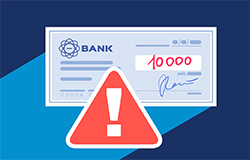-
Topics
- Topics Overview
- Compliance Compliance
- Risk Management Risk Management
- Consumer Banking Consumer Banking
- Commercial Banking Commercial Banking
- Payments Payments
-
Technology
Technology
Back
-
Wealth Management
Wealth Management
Back
-
Marketing & Communications
Marketing & Communications
Back
- Marketing & Communications
- Marketing & Communications Overview
- Marketing
- Social Media
-
Leadership & Operations
Leadership & Operations
Back
- All Banking Topics
-
Training & Events
- Training & Events Overview
- Calendar
-
Conferences
Conferences
Back
- Conferences
- Conferences Overview
- ABA/ABA Financial Crimes Enforcement Conference
- Women Lead Symposium
- Agricultural Bankers Conference
- American Mortgage Conference
- Annual Convention
- Bank Marketing Conference
- Conference for Community Bankers
- Diversity, Equity and Inclusion Summit
- Insurance Risk Management Forum
- MDI Partnership Summits
- Risk and Compliance Conference
- Washington Summit
- Wealth Management and Trust Conference
-
Online Training
Online Training
Back
- Online Training
- Online Training Overview
- Onboarding and Workplace Essentials Online Training
- Commercial Banking Online Training
- Compliance Online Training
- ABA Frontline Compliance Training
- Consumer Banking Online Training
- Leadership & Operations Online Training
- Marketing & Communications Online Training
- Payments Online Training
- Risk Management Online Training
- Technology Online Training
- Wealth Management Online Training
- Certifications Certifications
- Schools Schools
-
Textbooks & Workbooks
Textbooks & Workbooks
Back
- Textbooks & Workbooks
- Textbooks & Workbooks Overview
- Analyzing Financial Statements
- College Accounting
- Commercial Lending
- Consumer Lending 7th Edition
- Handbook of Bank Insurance Compliance
- Legal Foundations in Banking
- Marketing Financial Services
- Money & Banking
- Principles of Banking
- Today's Teller: Developing Basic Skills
- Career & Workforce Development Career & Workforce Development
- All Training
-
Experts & Peers
- Experts & Peers Overview
- Experts on Call
- Speakers Bureau
-
Discussion Groups
Discussion Groups
Back
- Discussion Groups
- Discussion Groups Overview
- Ag Bank Network
- Bank Operations Network
- Bank Risk Network
- CECL Network
- Commercial Network
- Compliance Network
- Environmental Social and Governance Network
- Marketing Network
- Mortgage Network
- Security Network
- Social Media Collaboration Network
- Training Network
- Trust Network
-
Committees and Councils
Committees and Councils
Back
- Committees and Councils
- Committees and Councils Overview
- 1033 / Data Aggregation Working Group
- Banker Employee Resource Groups
- Accounting Administrative Committee
- Accounting Committee
- Agricultural and Rural Bankers Committee
- AI Working Group
- Americans with Disabilities Act Peer Group
- Appraisal Working Group
- Black Banker Employee Resource Group
- Brokered Deposits Working Group
- Card Information Sharing Group
- CFPB Consumer Response Working Group
- Commercial Real Estate Lending Committee
- Community Bankers Council
- Community Engagement and Reinvestment Committee
- Compliance Administrative Committee
- Core Platforms Committee
- COSO Peer Group
- CRA Working Group
- Cyber and Information Security Working Group
- Debt Collection Working Group
- Diversity, Equity, and Inclusion Advisory Group
- Diversity, Equity, and Inclusion Open Forum
- Digital Assets Working Group
- Economic Advisory Council
- Emerging Leaders Peer Group
- Environmental Social and Governance Working Group
- Fair Lending Working Group
- Federal Home Loan Bank Committee
- Flood Compliance Working Group
- Funds Working Group
- Government Relations Council
- GSE Policy Working Group
- HR Policy Working Group
- HSA Council
- Internal Audit Peer Group
- Internal Fraud Discussion Group
- Minority Depository Institution Advisory Council
- Moderate or Limited Trading Assets Working Group
- Money Laundering Issues Group
- Mortgage Markets & Lending Technology Committee
- Mutual Institutions Council
- National Best Practices Discussion Group
- Open Compliance Committee
- Payment Systems Open Committee
- Physical Security Open Committee
- Proprietary Trading Working Group
- Risk Metrics/Key Risk Indicator Working Group
- Scenario Analysis Working Group
- Senior Protection Taskforce
- Taxation Administrative Committee
- Taxation Committee
- Telephone Consumer Protection Act Working Group
- Third-Party Risk Peer Groups
- Trust Taxation Committee
- Working Group on State Issues
-
Endorsed Solutions
Endorsed Solutions
Back
- Endorsed Solutions
- Endorsed Solutions Overview
- In the News
- Our Due Diligence
- ABA Endorsed Housing Solutions
- Associate Members
- Job Board
-
News & Research
- News & Research Overview
- Analysis & Guides
-
Email Bulletins
Email Bulletins
Back
- Email Bulletins
- Email Bulletins Overview
- ABA Daily Newsbytes
- ABA Tools & Resources
- Ag Banking
- Banking Docket
- CFOs
- Communications Resources
- Risk, Compliance & Financial Crimes
- Fintech
- Health Savings Accounts
- Human Resources
- Mortgages
- Payments
- Cybersecurity
- Spotlight on Innovation
- Wealth Management & Trust
- Weekly Roundup
- Podcasts
-
ABA Banking Journal
ABA Banking Journal
Back
- ABA Banking Journal
- ABA Banking Journal Overview
- ABA Viewpoint Blog
- ABA Banking Journal Directors Briefing
-
ABA Risk and Compliance Magazine
ABA Risk and Compliance Magazine
Back
- ABA Risk and Compliance Magazine
- ABA Risk and Compliance Magazine Overview
- Editorial Calendar
- Advertising Rates & Information
- Reader Profile
- Author Guidelines
- Magazine Contacts
- ABA Bank Marketing
- All News
-
Advocacy
- Advocacy Overview
-
What We Stand For
What We Stand For
Back
-
Our Issues
Our Issues
Back
- Our Issues
- Our Issues Overview
- Ability to Repay and "Qualified Mortgage" Exemption
- Access to Banking
- ACRE Act Enactment
- Affordable Housing and Community Investment
- Bank Secrecy Act / Anti-Money Laundering (BSA/AML) Reform
- Cannabis Banking
- Capital Requirements
- Climate Risk and Banking
- Community Reinvestment Act Modernization
- Credit Union Competition
- Cryptocurrency and Digital Assets Policy
- Current Expected Credit Loss Standards (CECL)
- Data Security Standards
- De Novo Banks
- E-SIGN Modernization
- Farm Credit System Competition
- Fiduciary Regulation by the Department of Labor
- Fintech Policy
- Flood Insurance Reauthorization and Reform
- GSE Reform
- Interchange Price Controls
- Interest Rate Caps
- Payments System Integrity
- Public Banks
- Volcker Rule Reform
- Policy Analysis & Advocacy Efforts
-
State Laws & Legislation
State Laws & Legislation
Back
- State Laws & Legislation
- State Laws & Legislation Overview
- State Legislative Tracker
- Comparative State Law Charts
-
State Association Alliance
State Association Alliance
Back
- State Association Alliance
- State Association Alliance Overview
- Section 201 Banks by State
- State Association Contacts
-
Political Engagement
Political Engagement
Back
- Political Engagement
- Political Engagement Overview
- BankPac
- Grassroots
- Voter Education Program
- Community Programs Community Programs
- Impact of America's Banks
-
About Us
- About Us Overview
- Our Story Our Story
- Leadership
- ABA Foundation ABA Foundation
- ABA Routing Number
- Press Room Press Room
-
Careers at ABA
Careers at ABA
Back
- Careers at ABA
- Careers at ABA Overview
- Benefits
- FAQs
- Internships
- Contact Us Contact Us
-
Membership
- Membership Overview
- Join
-
Details About Membership
Details About Membership
Back
-
Members Get Started
Members Get Started
Back
- Members Get Started
- Members Get Started Overview
- Member Benefits Orientation Webinar
-
Member Savings
Member Savings
Back
Sign In








